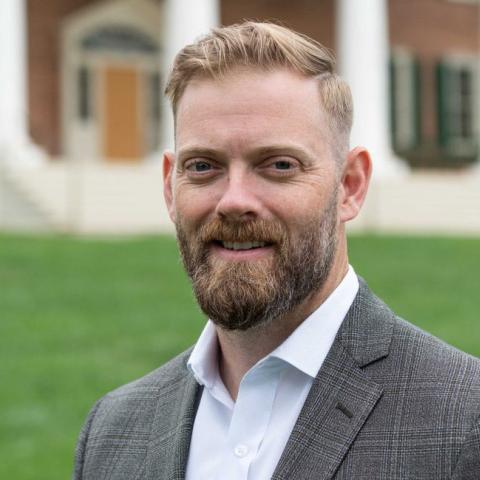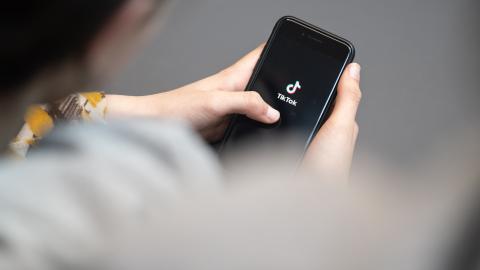This week, the Senate passed a bill that would force TikTok‘s Chinese parent company, ByteDance, to divest the popular video app. Millions of young people get their news from the app, and that number is only growing as we approach an election. TikTok now holds massive sway in political life.
We should take this debate as a moment to think seriously about the way our young people consume news and information.
Shockingly, preteens alone spend an average of nine hours a day on their devices and regularly fall victim to malicious trends and disinformation. Our youth are in desperate need of the skills and knowledge to resist the siren songs they hear online. Civics education can provide a defense.
We also know that America’s adversaries use social media to manipulate our democracy. China, Iran, and Russia have all set up large troll farms to generate content and influence voters — especially young, impressionable ones. These authoritarian regimes want to interfere in American politics, undermine public trust, and divide our people. As the election looms, they will certainly increase efforts to inflame the extreme Left and Right alike.
This should not come as a surprise — our Founders warned that rival powers would seek to exploit our partisan divides. In his farewell address, President George Washington pointed out that faction “opens the door to foreign influence and corruption, which find a facilitated access to the government itself through the channels of party passions.” The digital revolution and social media simply give our adversaries more sophisticated tools to manipulate the public.
Washington understood that the best way to overcome this malign pressure is to make citizens informed patriots. As he put it, “Against the insidious wiles of foreign influence (I conjure you to believe me, fellow citizens,) the jealousy of a free people ought to be constantly awake.” Our founding principles, rightly understood, are the bulwark against this threat of foreign manipulation.
That is why investing in civic education is of vital importance to our national security. Free government is our shared project as citizens, and education from the K-12 level to college and even the military needs to reflect that principle. When we really know what unites us, our enemies will find it more difficult to divide us.
As artificial intelligence proliferates and bad actors influence media narratives on apps such as TikTok, civics classrooms are where students can learn media literacy skills. Strong civic education will help young people identify bias and better understand contemporary political debates by studying our nation’s past. Exposure to the great debates of American history, which include some of the best critiques of America, will open up their ability as citizens to easily identify arguments and poor lines of reasoning made in the media.
Students also learn how to think about tough matters in civics classes. Our institutions are built on the idea of self-government, where citizens and their representatives openly debate and discuss topics. We do not believe a central authority should do your thinking for you. The freedom to think means we share a responsibility to think. That’s why open debate is one of the great strengths of democracy. We must invite young people to engage and grow into full participants in our civic life.
Civic education instills these ideas and responsibilities of citizenship while acquainting students with the essential primary source documents of the American political tradition. By reading and discussing the Constitution, the speeches of Abraham Lincoln, or the autobiography of Frederick Douglass — by encountering past Americans as they were — our country’s brightest moments and darkest shame can come to life. In this way, we can make civics education foundational to our shared life as citizens and steel ourselves against foreign influence and societal fissures.
Furthermore, by encountering history as it happened, we gain perspective on the events of our own time. We can see the context for events as they unfold before us, and we can beware of certain pitfalls and rhetorical fallacies that recur throughout history.
The good news is that civics education is beginning to blossom across the nation. At universities including Arizona State, Florida, Utah Valley, Tennessee, and Texas, states are building a curriculum to better prepare students to be citizens. But more work remains — much of it at the K-12 level.
Ultimately, we need to cultivate an understanding of responsible citizenship in our students. Late historian Bruce Cole, who served on the board of the Jack Miller Center, once wrote, “Citizens who cannot define their liberties cannot defend them.” In times such as our own, the liberties that we hold as citizens are worth defending. So let’s give teachers and students the tools they need to define them.















